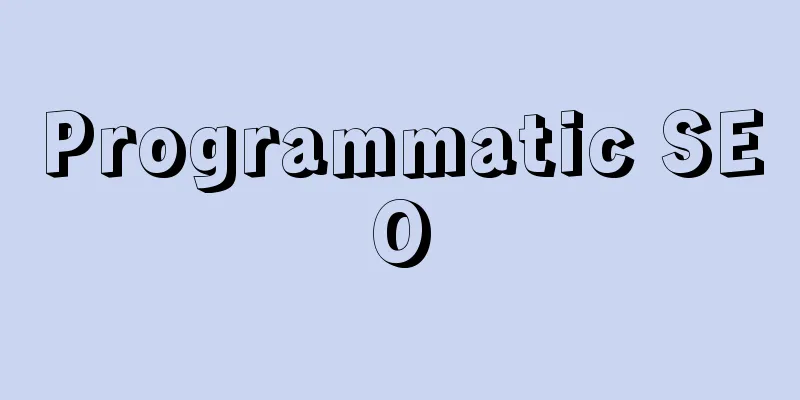Poe AI: The future of building creator infrastructure

Poe demonstrated how to meet the market demand for instant and diversified AI services by providing a unified interface to access multiple AI models. This innovation not only improves the user experience, but also opens up new possibilities for the widespread application of AI technology. Poe's success also lies in the fact that it provides a platform for independent creators and developers to showcase and commercialize their AI models. This model provides investors with an opportunity to observe and evaluate emerging technologies and innovators. For product developers, staying agile and being able to respond quickly to market demands and technology trends will be the key to success, while investors should identify companies that not only have technological advantages but can also differentiate themselves through unique products, services or business models. 1. Product: Poe 2. Founded: 2022 3. Founding Team Adam D'Angelo: Founder of the well-known question-and-answer website Quora. Adam D'Angelo is an entrepreneur with extensive experience in building consumer-end Internet companies and has successfully developed Quora into a platform with hundreds of millions of active users per month. 4. Product Introduction: Poe.ai is an innovative platform that aims to provide users with direct access to a variety of advanced artificial intelligence models, including OpenAI's ChatGPT, Anthropic's Claude, etc. Users can communicate with these AIs through a simple interface, ask questions and get answers, and achieve efficient interaction with artificial intelligence. At the same time, users can also create their own robots and publish them for use with others and earn money from them. 5. Financing: March 2017: Poe.ai completed its Pre-Seed round, which was Poe.ai’s early stage funding activity. January 2024: NQuora successfully raised $75 million for its AI chatbot platform Poe, led by Andreessen Horowitz (a16z). 01 Social networks as a supplement to AIAdam D'Angelo discusses how social networks and AI technologies complement each other. Adam D'Angelo: I became very interested in AI early in my career. I remember trying to build some AI products in college, but the technology wasn't mature enough to make a product that was suitable for consumer use. At the same time, I saw social networks starting to grow rapidly. You can think of a lot of social networking technology as a replacement for AI. So instead of trying to get computers to do everything, you could connect people through the internet and enable them to do these tasks. Adam D'Angelo: Just like Quora is a collection of knowledge from a lot of people who are willing to share their knowledge, we want Poe to be a way for people to access AI from a lot of different companies and a lot of different people building on AI. You can come to Poe and talk with a lot of the models that are currently available. And then we have all these other people's products that are built on top of these models. We have an open API that anyone can plug into. So, anyone who is training their own model, all these model research teams, anyone who is fine-tuning a model, they can put their model on Poe. We allow their model to quickly reach a broad audience. 02 The future of AI is multi-model and multi-modalPoe's CEO: Discussed the future development trends of AI and emphasized that diversified models and modalities are the future direction. Adam D'Angelo: I think there are a lot of tradeoffs involved when everybody makes their own model. You have to decide what data you're going to train it on, what kind of fine-tuning you're going to do. What kind of instructions does the model expect from you as a user? What do you want your users to expect to use the model for? Just like the early days of the internet exploded with different applications, I think we're going to see the same thing with AI. So, in the early days of the internet, web browsers came along and made it so that anybody making an internet product didn't have to build a special client to distribute to people around the world. They just had to build a website, and that web browser could access any website. In the same way, we want Poe to be a single interface that people can use to talk to any model. We're betting on diversity because there are so many talented people around the world who will have the ability to tweak these models. You can tweak open source models. There are also products coming out from OpenAI and Anthropic, and I think Google is about to come out with something, where you're going to be able to fine-tune all of these models. Everybody has their own datasets, everybody has their own special techniques that they can add to the model. I think that through the combination of all of this, we're going to see a very diverse range of things that you can do with AI. Adam D'Angelo discussed whether the model providers themselves will build all the products. Adam D'Angelo: If you're a large model creator and you have a few dozen employees that you can assign to build consumer products and you have a culture of doing that, then you can go direct to consumer and you can build a good product. I think most people who train these models are not in that position. If you want to take your model to consumers around the world, you need an iOS app, you need an Android app, you need a desktop app, you need a web interface. You need billing in all these different countries. You have to think about taxes. There's a lot of work to do. You can choose, you know, you raise some venture capital, you can spend some of that money hiring a whole team and developing all of this capability, or you can spend that money making your model even better. I think different startups are going to choose different paths. But I think the right path for a lot of people is going to be to build an API, or plug into Poe's API, and reach a lot of consumers very, very quickly through that. Poe.ai has an extremely powerful AI robot ecosystem Adam D'Angelo: We have a revenue sharing program that allows people to get paid for people using their bots on Poe. It's very expensive to provide inference for these models, so almost no other platform offers this type of revenue sharing today. So if you have a model that requires a lot of GPUs for inference, then this is really the best place for you to come and have a real business where you can cover your inference costs and make more. We think a lot of innovation is going to come from these companies. There are other companies building things on top of some large models, like, say, the one from OpenAI. In that case, they have to pay OpenAI for inference costs, which is another source of needed funding. So Poe's revenue sharing model works in the same way, it will make you cover the costs that you then pay to any other inference provider. Poe.ai provides financial support to creators 03 Building AI infrastructure for creatorsPoe's CEO: emphasized the importance of providing tools and platforms for creators to promote the democratization of AI technology. Adam D'Angelo: There's a lot of interest in image models right now. There's Stable Diffusion, SDXL, and then we let users do some prompts to customize it to give a specific style of art. There's some like anime-style SDXL bots on Poe. Those are very popular. There's this company called Playground. They make products for people to edit images. But in the process, they created a pretty powerful model and have that model available on Poe. That one has become quite popular recently. Playground AI Adam D'Angelo went on to talk about the similarities between the mobile platform shift and this wave of AI, as well as some key differences. Adam D'Angelo: For Quora, I think we were a little slow to adapt to mobile. You know, mobile was one of our many priorities, it needed to be priority number one, and we needed to make harder tradeoffs to prioritize it. You know, we needed to do things like hire a different set of people to focus on it, and have a period where we didn't release any new features, we just simplified things because the mobile UI required a different experience. When you have such a critical structural change to the platform, you need to rethink so much, and that can only happen if you have this kind of very strong top-down leadership. Adam D'Angelo: When you're faced with a new platform change, I think the first thing is to identify that trend and then start doing some early experiments, just to learn. This doesn't require any strong leadership, just attention to the market. But from those experiments, we gained enough conviction that Quora's product was too much built on the publishing model, which is basically built on the assumption that expert time is going to be scarce. And AI, large language model (LLM) time is not scarce in some sense. So we need to rethink that. This was in August 2022, and we concluded that chat was the right paradigm for this space and we needed a new product. Just trying to adapt everything to Quora...we thought we would move too slowly. So we had a small team start working on Poe based on this. 04 Knowledge Sharing on the InternetPoe's CEO: Discusses how to combine the knowledge of human experts and AI-generated content as well as the current status and challenges of knowledge sharing. Adam D'Angelo: We would love to have as much integration between Quora and Poe as possible. You know, I think if you think about the relationship between Facebook and Facebook Messenger, these are two products built by the same company, but they share a lot. I think Poe and Quora will probably evolve into a similar relationship. We want to bring more of the human aspects of Quora into Poe. We also want to bring the entire Quora dataset into the Poe bot. We're also working on... We've already launched some content to make some of the Poe AI-generated answers available on Quora. As these models continue to scale, the quality will get better and better, to the point where it's actually as good as human quality in a lot of cases. So the paradigm of Quora is actually a better fit for AI as the cost of inference becomes higher. We think we are building a network where both humans and AI can share knowledge together. Sometimes people will get knowledge from AI, and sometimes AI needs to get knowledge from humans, and we are happy to be the channel for this transfer as much as possible. Adam D'Angelo expressed his thoughts on the internet and what might happen if humans interacted with robots that had different personalities and different expertise. Adam D'Angelo: I think there's a lot of potential in the interaction between humans and large language models (LLMs). I think a lot of people...Large language models (LLMs) have a hallucination problem right now. I think the frequency of hallucinations will go down as the models get better, but it will never be 100% perfect. I think there will be a huge emphasis on knowing the source of your information, knowing which person said it, or which publication originally published it. I anticipate that this will lead to some kind of product or some kind of user experience where large language models (LLMs) help you curate your sources and cite the exact expert or the exact source, rather than just synthesizing them and giving you something that you can't fully trust the source of. If you just look at a model, the original model doesn't have access to these other databases, it can get the exact references. So it has to be some kind of enhancement to the model, but how tightly it will be integrated into the model, I don't think we know yet. 05 AI’s scale advantageDavid George discussed how scale affects the development and application of AI technology and explored the different choices AI companies have in their development strategies. Adam D'Angelo: So far the large model sizes have held up. My prediction is that there are some issues to overcome, but there is such a large industry right now and so many talented people trying to advance this technology. There's so much money behind it. There's so much power behind it to help overcome any obstacles that we encounter. So I expect it will only continue. I think there will be obstacles, there will be problems that need to be solved, there will be breakthroughs that will probably require huge innovations, but we have the smartest, most determined, most talented people in the world who are focused on this problem. I think we're going to continue to see the same exponential growth in progress that we've had so far. I think that will continue for many years. Adam D'Angelo believes that market structure is ultimately a competition on scale or feature differentiation. Adam D'Angelo: To train these cutting-edge models, you need billions of dollars of capital and years of infrastructure investment. There are only a few who can do that. This leads to a world where there are only a few players who can be at the forefront. Right now it's OpenAI, Google, maybe Anthropic. Maybe Meta can do it. Those who can get to the forefront, I think it's going to be good business. You're going to be able to make a lot of money. You can have good margins. You have to work really hard to stay on the cutting edge, to stay ahead. But it's not a commodity. I think when you're six months behind the cutting edge, or certainly a year behind the cutting edge, it gets pretty brutal. There are too many people with access to capital and resources to train those models. It either has to be completely open source, or there will be too many different competitors for anyone to be able to build a good business on pure technology at that point. I think there will be very good businesses that don't use cutting-edge models at that level, but combine some other uniqueness with the model. So, it could be that you provide some kind of tool that the model can use, or you have some unique data for fine-tuning, or it could be some unique product that you build around the model. And then that becomes a source of competitiveness. I think there's going to be a choice where you either compete on scale, by being at the leading edge, or you compete on some kind of feature differentiation. In that case, you don't need a leading edge model. In some cases, you'll have both. So, you know, you might be able to use the OpenAI API and combine it with some kind of unique tool that you offer, and that could also be a good business. Adam D'Angelo believes that fault tolerance is the wedge of a startup. Adam D'Angelo: Incumbents will be able to acquire the technology and own the distribution. That's a big advantage they have. I think the opportunities for new players in this wave are more in situations where the product you want to build around this technology is in some fundamentally different way than what has been built before. So, as an example, the hallucination problem, in some ways it's a good thing for startups because a lot of existing products have zero tolerance for producing the wrong thing. You can see, I think, Perplexity taking share from Google right now. Google can't just put something on all their search results that has a small chance of being wrong. That would be a huge problem. Perplexity, this can only be your expectation when you use the product that it will almost always be right, even if there is a small chance of being wrong. I think this actually happens in a lot of other cases where you build products around this, they need some kind of tolerance, there needs to be a user expectation that not everything is going to be perfect. There are these entrenched companies that maybe have very strong brands that never make mistakes, never screw up, are always reliable. A startup can come in and say, okay, this is going to cost one-tenth or one-hundredth the price, but it's going to have a small chance of error. And actually, a lot of people will prefer that. But for the incumbents, it's a real problem because they can't compromise their brand. Adam D'Angelo: If I were starting a new company right now, what I would do is spend a lot of time playing with models and integrating them with different things. You know, there are lots of different inputs you can give to the model. You can make scrapers that get data from anywhere. You can get data from the user's local screen. You can get data from sound. There's such a broad space of needs that people have, and such a broad space of different inputs to try to meet those needs. I think it's hard to just think top-down about where the needs are in the market. I think experimentation is the way to generate ideas and build a startup that can build something truly valuable. References: https://a16z.com/adam-dangelo-ai-masses/ |
<<: What is the traffic password of Xiaomi copywriting?
>>: In-depth content is the starting point of brand marketing
Recommend
Two new changes in WeChat public accounts
Keep up with the latest developments in WeChat and...
Can Wish still distribute products? What is Wish's current strategy?
As a cross-border platform focusing on mobile term...
How to maintain an eBay account? What should I pay attention to?
Cross-border e-commerce is also a great opportunit...
An analysis of how Xiaohongshu’s 618 promotion works: what’s different this year?
618 is about to start, and all platforms are prepa...
What is the difference between Shopee's overseas warehouses and local warehouses? How to operate a store?
After opening a store on Shopee, many people do no...
What is the best image size for Amazon? How to set it?
On the Amazon platform, the quality of product ima...
How to create the details page of Alibaba International Station? What are the tips?
You should have heard of Alibaba International Sta...
E-commerce platforms have different faces and the same face for different people
The author of this article proposed a concept, the...
Long video overseas: those who roll outwards will enjoy the world first
As global cultural exchanges continue to deepen, t...
In ToB marketing in the digital age, how can the marketing and sales departments collaborate efficiently?
This article details the common goals and basic st...
How does Wish promote its products? Is the promotion effective?
As a world-renowned cross-border e-commerce platfo...
What kind of self-media makes more money?
In the Internet age, everyone wants to benefit fro...
Can Amazon Hong Kong ship directly to mainland China? What are the regulations?
When it comes to shopping on Amazon, in fact, it i...
Has Kuaishou found the methodology to turn “foreigners” into “old friends”?
After experiencing a series of setbacks, Kuaishou ...
Tracking nearly a thousand pieces of data for 18 consecutive days, pixel-level analysis in action, how to find hot-selling products through e-commerce testing
As e-commerce competition becomes increasingly fie...









